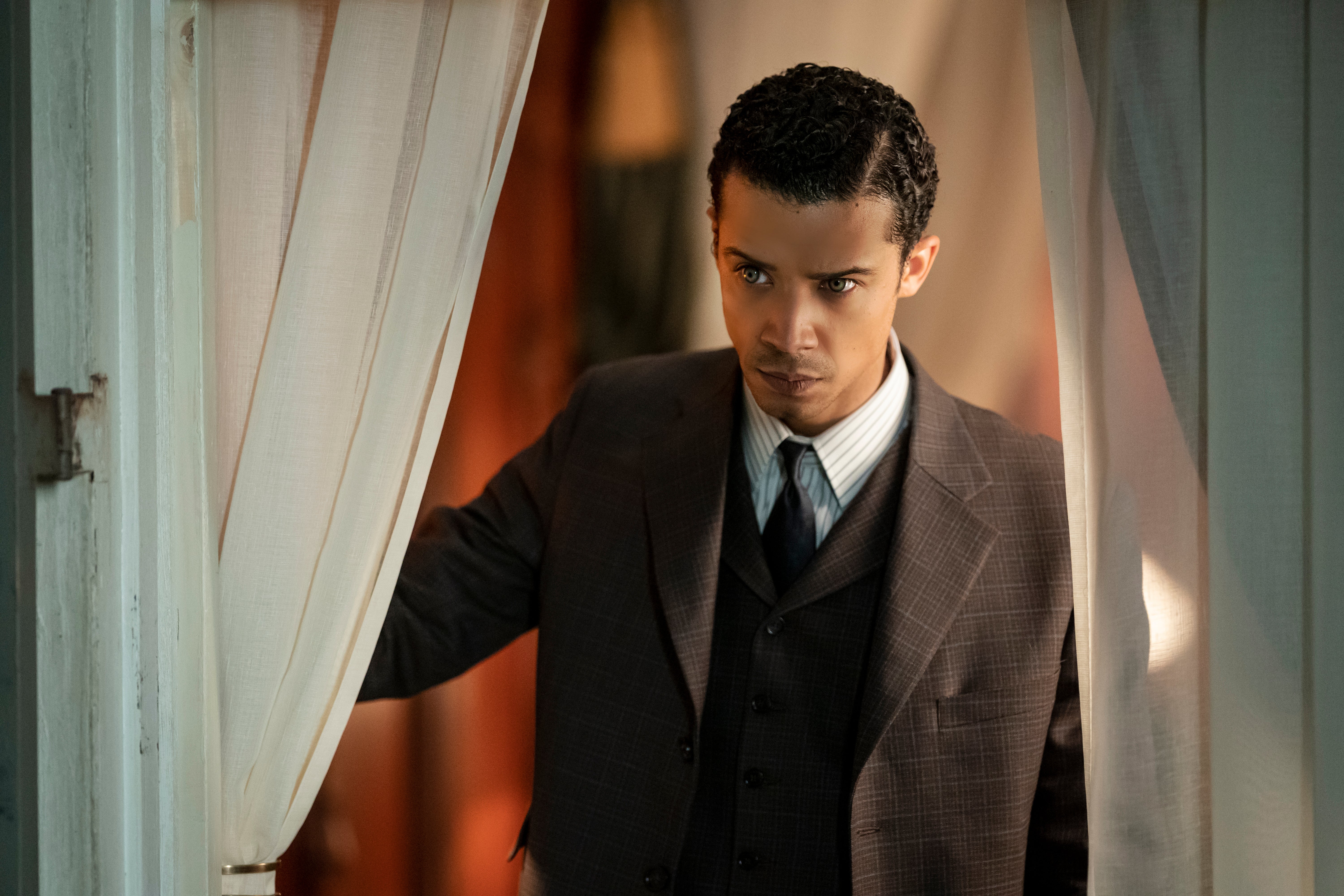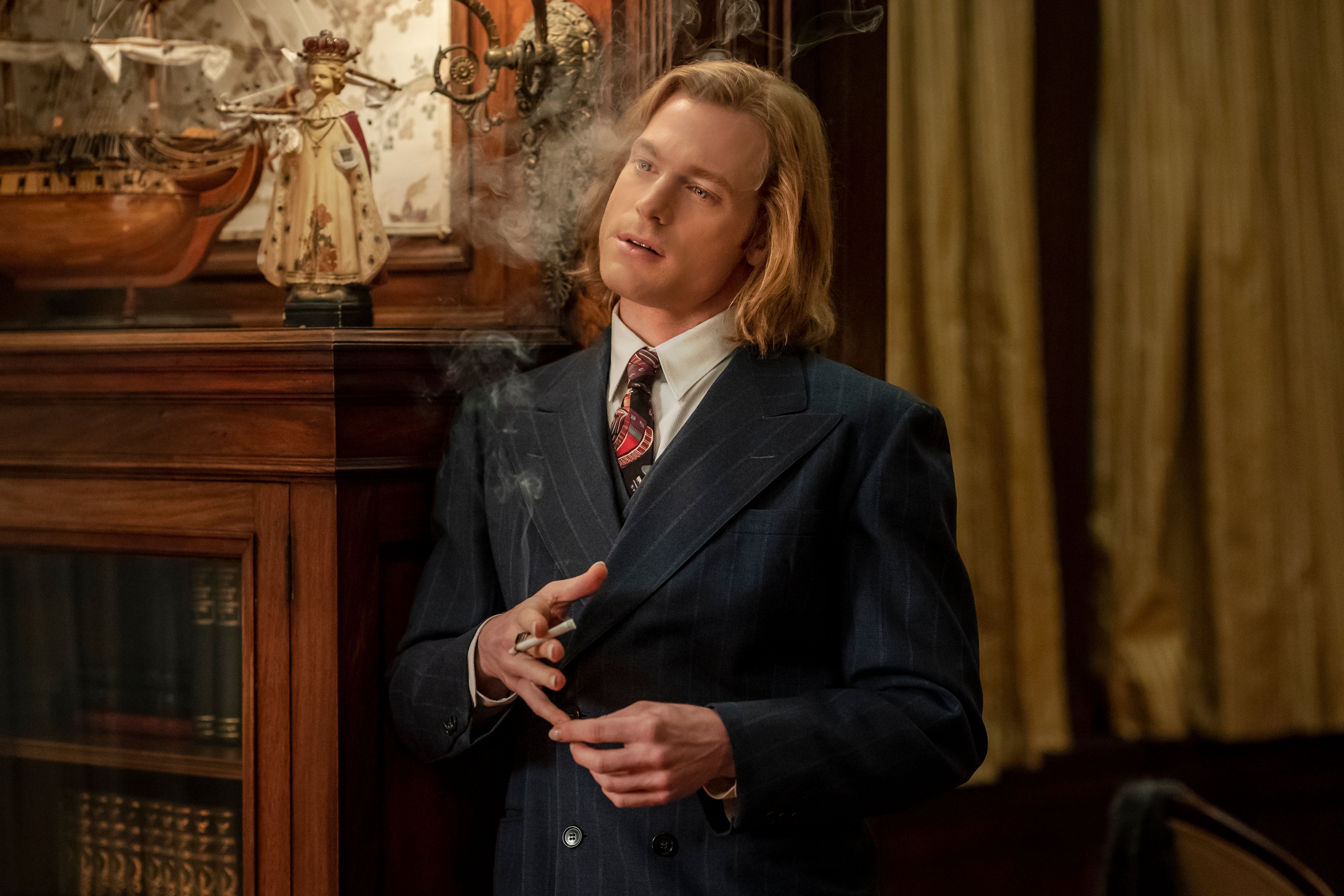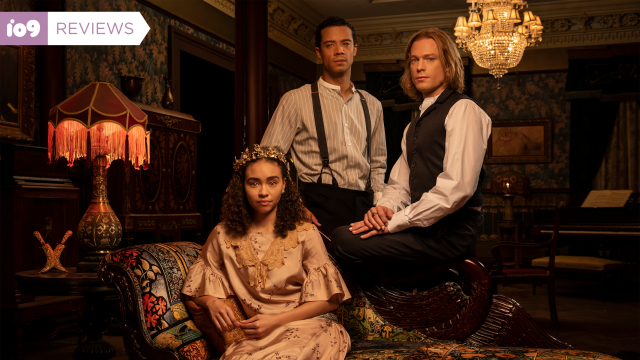Anne Rice, as an author, is obsessed with the ways that love is a singularly horrible experience. It tears you apart, it destroys you, it eats you alive. In the newest adaptation of her work, AMC’s Interview With the Vampire, love is placed at the centre of a reconstructed version of her seminal twisted fantasy, resulting in a sweeping, Southern Gothic romance where two vampires make a fool of death with their inescapable, never-ending, horrific love.
You may think you know the story of Louis de Pont du Lac and his immortal vampire maker, Lestat de Lioncourt, but you’ve never seen them quite like this. While the show takes plenty of inspiration from the book, key plot elements have been changed to contemporize the story and make it more palatable to the modern audience. In the book, for example, Louis is a Louisiana plantation owner who allows Lestat to feed on the enslaved people that are forced to work on the grounds. It would be difficult, if not impossible, to sympathise with the maudlin anger of this kind of character, especially if his main character tension came from his concern with becoming a good person. Considering his past sins, his immortal brooding on morality would only ever come off as annoyingly self-serving and shallow.
This show is not that version of Louis. Instead of a late 18th century slave-owner, the contemporary Louis de Pont du Lac (Jacob Anderson) is a Black man who owns a fine selection of brothels in New Orleans in the early 20th century. He supports his well-to-do family, plays at politics and poker in the local alderman’s club, and, as it so happens, is clearly, explicitely, and without any kind of dodging around the question, a gay man. Already this version of Louis is setting up a story that is narratively very different from the 200-year-old vampire of the original book, but who still retains that core tension of the character — a man who is too modern for his lifetime, but who never quite learns how to be a modern man.
After watching the first five episodes of AMC’s Interview With The Vampire, I have nothing but praise for the series. It was, I feel, made for me. Unapologetically queer, unafraid to wreck the source material while still managing to preserve its bones, and exceptionally detailed in its creative production; the show takes the original work and holds it up to the sunlight, letting the skin and flesh burn until all that’s left is something bright, polished, and undeniably gruesome.
One of the things that I admire about this series is that there are no coy glances at queerness. There is no subtext or sidelining of the queer relationship between Louis and Lestat; instead they are co-conspirators in seduction, explicitely in love and obsessed with each other. They are furious and fatal companions, and their love is nightmarish. Interview With The Vampire has created a sumptuous exploration of queerness at the turn of the century, doing away with the sweet nothings that fans had to pick out from the text and instead embracing the grandeur of the sweltering Southern Gothic setting, creating a pair of characters that are constantly tearing themselves apart as they attempt to fuck their way out of feeling hurt.
One of results of this disregard for subtlety is that the sexual subtext, which for so long was at the core of the tension between Louis and Lestat (Sam Reid), has been laid bare, like a raw nerve. AMC’s adaptation must instead find new ways to bleed. As a man becomes a monster and learns how to be human, the seductive bite of the series comes from Louis’ struggle with his religion, his desire to be the good monster, his racialized interactions with the white politicians and businessmen, and his fraying ties to his family, who grow increasingly more afraid of him as the series continues and tragedy strikes over and over. It is a spiral that winds itself tighter and tighter around Louis, who was killed and has died for love. As for Lestat, his desperation, his loneliness, his monstrosity, all of it tears at him, slowly being picked away like last season’s wardrobe. His soul is loose at the seams and he has sought out Louis, desperate for someone to affix himself to as he stares down the threat of immortality, armed against the darkness with only a needle.

Another part of Interview With the Vampire, and all of Anne Rice’s novels, is that it is deeply, fundamentally weird. She is constantly trying to explain herself, to dig into the origin of her lore, work, and characters. It is an admirable trait in an author to be so willing to interrogate yourself as a source of creativity, but in action, it results in some fascinatingly bonkers origin stories for vampires, witches, and even aliens. While the show isn’t quite doing all of that (yet), it is certainly embracing the off-putting strangeness of Rice’s vampires. Supernaturally strong, fast, and vicious, the vampires of the show have more than one trick up their sleeves when it comes to dealing with humanity writ large. The result is that everything is just a little bit odd. It leans into the absurd without compunction, and it is delightful.
The thing to remember is that this show has made choices. And when it came to a point, any point, where it had to make choices, it made the most choice possible. The decisions are extra, dramatic, over the top, extreme, gory, and flamboyant. While the show is still incredibly approachable, it has created an atmosphere of grandiosity that makes every part of it feel heavy, laden with meaning, and soaked in blood. It is, in short, extremely fucking campy, and it is unfraid to throw a fucking ball.

AMC’s Interview With the Vampire knows that it has to contend with the past iterations of its story, but instead of distancing itself from the books or the film, it is gleefully reveling in the conversation. In the book, Louis seeks out Daniel Malloy in the ‘70s, relating his story to the young reporter. In the series, Louis has done the same thing, but after the end of the interview went poorly, Louis and Daniel separated. Now, 50 years later, in the undeniably modern 2022, Louis has invited Daniel to Dubai in order to attempt to tell his story–again. This show contends with the meta of reinterpretation, and seems to enjoy wrestling with it. Eric Bogosian as Daniel brings aggressive, no-nonsense directness to the series, a fantastically human addition amid all the monsters we are otherwise surrounded by. What comes of this acknowledgement of change and adaptation is a nuanced awareness of how abuse can shred the tapestry of memory.
The relationship between Louis and Lestat is romantic, yes, but it’s also very clearly toxic, obsessive, and damaging. By giving two interviews, Louis has space to reflect, and we are given an incredibly intentional exploration of an abusive relationship. It feels like a necessary admission, and by allowing time to pass — and acknowledging that we as an audience can enjoy watching the downwards spiral of two men wrapped up in each other — Interview With the Vampire confronts its own shortcomings and, much like what it does with the queer subtext, turns implications into examinations, creating a stronger, tighter, more mature work.
AMC’s Interview With the Vampire is a sexy, edgy, weird, contemporary, and sophisticated reconstruction of Anne Rice’s Vampire Chronicles. Within an artful articulation of violence, masculinity, and love, Jacob Anderson and Sam Reid bleed, clawing at New Orleans and each other. The writing understands not only the characters, but the intrinsically campy, absurd premise of the vampire itself. It sacrifices the golden calves to sate the audience and the result is a celebration of all the things that gave the series cult status to begin with. Interview With the Vampire is a predatory series, unafraid to go for the jugular, ripping at the most beloved parts of itself to get the audience to claw at their own necks, gasping and desperate for more.
Interview With the Vampire will be released weekly on AMC, starting October 2.
Want more Gizmodo news? Check out when to expect the latest Marvel and Star Wars releases, what’s next for the DC Universe on film and TV, and everything you need to know about House of the Dragon and Lord of the Rings: The Rings of Power.
Editor’s Note: Release dates within this article are based in the U.S., but will be updated with local Australian dates as soon as we know more.
